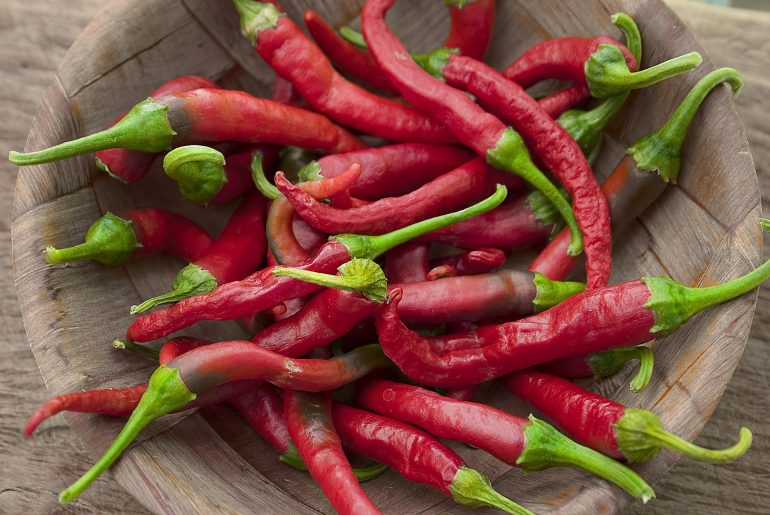People who eat spicy foods may have a heightened sensitivity to the taste of salt, a new study suggests.
The findings were recently published in the journal Hypertension and show there is reason to believe eating spicy foods may help people consume less salt. Eating less salt means lower blood pressure and better health for millions of people.
According to the World Health Organization (WHO), people are eating too much salt in all corners of the world. The recommended daily salt intake is less than 5 grams, but most people consume somewhere between 9 and 12 grams. The WHO estimates that 2.5 million deaths could be prevented each year if salt consumption was reduced to the recommended levels.
The health issue prompted Zhiming Zhu, M.D., professor of cardiovascular medicine and metabolism at the Chongqing Institute of Hypertension in China to pursue alternatives to salt. Zhu and his team decided to study spicy food specifically because it has been associated with improved cardiovascular health in the past. People who eat spicy foods are less likely to die from diabetes, cancer and ischemic heart disease.
Participants were given taste test solutions of varying levels of salt or capsaicin, the compound that makes peppers hot, to help gauge their spicy or salty preferences. Participants also answered questions about their eating habits.
Those who enjoyed the spicy solutions were found to have lower blood pressure than their salt solution preferring peers.
Using PET and CT scans, the researchers then looked at how the brain received the salt or capsaicin. The scans showed that the salt solutions resulted in higher brain activity. But when capsaicin was used to lower the salt content, the brain activity matched that of the salt-only test.
“These results indicate that spicy flavor can modify our perception of salt intensity,” Zhu said. “We speculate that just by adding spices to low-salt foods, we may increase our salt taste and perceive the same saltiness as high-salt foods.”
How capsaicin tricks the brain into thinking it’s adding salt is not understood at this time.
But does this mean we should all run out and eat peppers?
Not quite. This information is useful, but since it’s just an association study it just means that people who enjoy spicy foods have lower blood pressure and not necessarily that spicy foods cause lower blood pressure.
Darn. But Zhu agrees that until further research comes along, eating more chili peppers won’t hurt.
(h/t American Heart Association)




